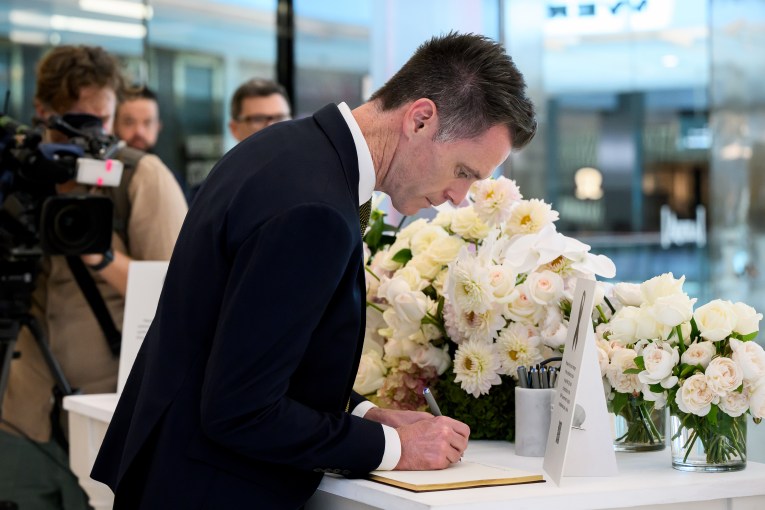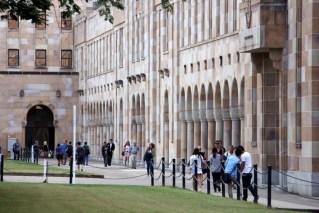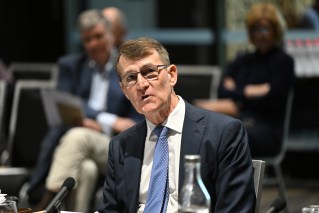Key Trump adviser tests positive as second wave looms large
Several Asian countries have imposed new restrictions as the world confronts the prospect of a second wave of COVID-19 infections.

President Donald Trump, pictured with national security adviser Robert O'Brien, has raised concerns over a 'rigged election'. (AP Photo/Evan Vucci)
In the United States, where infection rates have been climbing since mid-June, President Donald Trump’s national security adviser Robert O’Brien became the most senior White House official to test positive.
O’Brien has tested positive for the coronavirus but there is no risk of exposure to Trump or Vice President Mike Pence, the White House says.
“He has mild symptoms and has been self-isolating and working from a secure location off site. There is no risk of exposure to the president or the vice president. The work of the National Security Council continues uninterrupted,” the White House statement said.
The White House has said staff are regularly tested for the virus and O’Brien is the most senior official to be found positive amid the pandemic.
Surges were reported in several countries previously singled out as places where the virus was under control.
Vietnam locked down the city of Danang and forced tens of thousands of visitors to relocate, mainland China confirmed the most new locally transmitted cases since early March and Papua New Guinea shut its borders.
Hong Kong banned gatherings of more than two people, closed down restaurant dining and introduced mandatory face masks in public places.
Just weeks after European countries trumpeted the reopening of tourism, a surge in infections in Spain prompted the UK to order all travellers from there to quarantine for two weeks, torpedoing the travel plans of hundreds of thousands of people.
The World Health Organisation said travel restrictions could not be the answer for the long term and countries had to do more to halt the spread inside their borders by adopting proven strategies such as physical distancing and the wearing of masks.
“It is going to be almost impossible for individual countries to keep their borders shut for the foreseeable future. Economies have to open up, people have to work, trade has to resume,” WHO emergencies programme director Mike Ryan said.
“What is clear is pressure on the virus pushes the numbers down. Release that pressure and cases creep back up.”
Ryan praised Japan and Australia for having had “good success in containing the disease” but said that it was to be expected that the virus would resurge in areas with active transmission if restrictions are lifted and mobility increased.
“And that is what has essentially occurred in many countries is that in nightclubs, other situations, dormitories, other environments in which people are close together can act as amplification points for the disease and then it can spread back into the community. We need to be hyper-alert on those.”
Measures must be consistent and kept in place long enough to ensure their effectiveness and public acceptance, Ryan said, adding that governments investigating clusters should be praised not criticised.
Officials in some of the European and Asian countries where the virus is again spreading say new outbreaks will not be as bad as the original waves that hit earlier this year, and can be contained with local measures rather than country-wide shutdowns.
But countries that have suffered extreme economic hardship from months of lockdowns are also determined not to let the virus get out of control again, even if that means reversing the path to reopening.
In China, which managed to squelch local transmission through firm lockdowns after the virus first emerged in the central city of Wuhan late last year, a new surge has been driven by infections in the far western region of Xinjiang.
In the northeast, Liaoning province reported a fifth straight day of new infections and Jilin province reported two new cases, its first since late May.
The Japanese Government said it would urge business leaders to ramp up anti-virus measures such as staggered shifts, and aimed to see rates of telecommuting return to levels achieved during an earlier state of emergency.
“At one point, commuter numbers were down by 70 to 80 per cent but now it’s only about 30 per cent,” Economy Minister Yasutoshi Nishimura said late on Sunday.
“We really don’t want to backtrack on this, so we have to explore new ways of working and keep telecommuting high.”
-AAP












